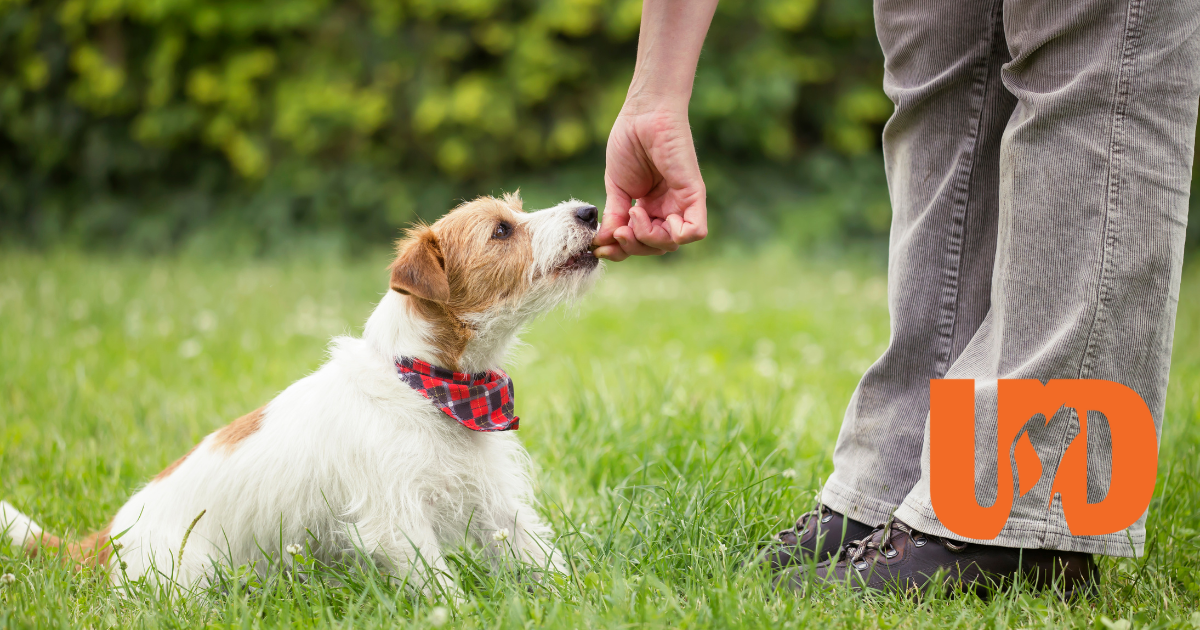The Power of Positive Reinforcement — And Its Hidden Pitfalls Positive reinforcement is one of…
Preparing Puppies for the Real World: A Guide to Raising Puppies
Bringing a new puppy home is an exciting time, but it also comes with great responsibility. As puppy parents, we must prepare our furry friends for the real world by teaching them how to be excellent dogs and companions. This process starts early and continues throughout our dog’s life.
With the ultimate guide to raising a puppy we will walk you through the different development milestones, essential skills to teach your puppy, and tips for being the best puppy parent you can be, you’ll learn how to help your puppy grow into a well-adjusted adult dog.
Puppy Development Stages
Puppies go through several key development phases, similar to human children. Knowing these stages helps us understand what our puppy is experiencing so we can best support them.
Click here to view an overview of puppy development milestones and what they entail.
Knowing what developmental stage our puppy is in allows us to provide tailored care and training to set them up for success.
What is the First Thing You Should Train Your Puppy?
Raising puppies is a lot like raising children. Just as we teach our children essential life skills for their overall development, puppies also need guidance to grow into well-behaved and well-adjusted adult dogs. Let’s dive into three vital skills every pup should learn and how you can teach these behaviors.
1. The Art of Relaxation
The ability of a dog to relax is essential – it ensures they remain calm and adaptable in different environments. Relaxation requires consistent training and environment management, especially in young, energetic puppies.
Why Relaxation is Crucial:
- Helps dogs handle new or stressful situations better
- Lessens the chances of anxiety-related behavioral issues
- Promotes a harmonious environment at home
Ways to Teach Relaxation:
- Crate Training: Use a crate as a safe haven, and pair it with chew toys to encourage quiet self-entertainment.
- Place Training: Teach your pup to stay calm in a designated spot like a place bed, helping them understand “settling.”
- Positive Reinforcement: Identify and reward spontaneous relaxed behaviors. For instance, if your pup lies down calmly, give a treat or praise.
- Scheduled Downtime: Dedicate a portion of the day for “quiet time” without high-energy activities, allowing the pup to unwind.
2. Instilling Impulse Control
Impulse control is the cornerstone of a well-mannered dog. Puppies, by nature, are impulsive, but with consistent training, they can learn to manage their instincts effectively.
Importance of Impulse Control:
- Prevents undesirable behaviors such as unnecessary barking or chasing
- Helps in navigating social scenarios with other dogs and humans
- Makes training easier as the puppy learns patience
Strategies to Build Impulse Control:
- Encourage Polite Greetings: Reward your puppy when they approach without jumping, reinforcing desired behaviors.
- Durational Exercises: Sit and down stay exercises are fundamental in building restraint.
- Structured Playtime: Games like “Find it” or Fetch, where the puppy has to wait for a command or cue, can boost self-control.
3. Mastering Socialization Skills
A puppy’s ability to remain neutral and relaxed in various environments, including the animals and humans in those environments, relies on positive socialization.
Significance of Socialization:
- Reduces fear and uncertainty in unfamiliar situations
- Lowers the risk of aggression or fear-based behaviors
- Fosters a confident and adaptable adult dog
Effective Socialization Techniques:
- Regular Outings: Regularly expose puppies to different environments, sounds, and experiences.
- Introductions: These are not as important as basic exposure is. These should be very targeted events with humans and dogs that you know and can trust to give your puppy a good experience.
- Positive Reinforcement: Reward calm and polite introductions to new situations or beings.
- Avoid Overwhelming Scenarios: It’s vital not to push a puppy into situations that can cause fear or distress. Always keep introductions paced and positive.
Our university’s founder Tecla Walton has a wonderful video that covers these skills as well:
By emphasizing these three pivotal skills during your pup’s formative months, you are not just training a dog but shaping a well-rounded, confident, and adaptable canine companion for years to come. Patience, consistency, and positive reinforcement are your best allies in this journey.
Being an Awesome Puppy Parent
Stepping into the role of a puppy parent is a beautiful and fulfilling journey. However, it requires dedication, patience, and understanding.
Just as children thrive with caring and attentive parents, puppies blossom under the nurturing care of responsible owners. Drawing insights from “Bonding with Dogs: The Art of Building a Strong Relationship,” let’s explore some tips to help you be the best puppy parent possible.
1. Hand Feed Meals to Bond and Cultivate Trust
Using mealtime as a bonding exercise can work wonders for your relationship with your pup. Hand feeding demonstrates to your puppy that good things come from you, solidifying your role as a provider.
It also strengthens engagement and teaches your puppy that your presence means nourishment and security. Sharing these intimate moments fosters trust and closeness.
2. Prioritize Gentle Guidance Over Harsh Corrections
It’s crucial to maintain a positive approach when guiding your puppy. Choose to redirect instead of reprimand to build a foundation of trust.
It also promotes confidence – puppies grow more self-assured when they aren’t afraid of harsh repercussions. Setting your puppy up for success by prioritizing consistent guidance makes training sessions more effective.
3. Uphold Predictability: Consistency is Key
A consistent environment allows your puppy to thrive. Knowing what to expect helps puppies feel secure, while regular cues and rules streamline the learning process.
Consistency promotes respect; predictable responses enhance mutual understanding.
4. Embrace Compassionate Leadership
Leading because you love and creating a balanced puppy-parent relationship is essential. Compassionate guidance through clarity, fairness and consistency earns your puppy’s respect.
A puppy guided by empathy is more receptive to learning. By handling challenges with patience, we reduce the chances of anxiety-induced behaviors.
5. Positively Reinforce Desirable Behaviors
Acknowledging and rewarding desired actions reinforce positive behavior. Reward-based training boosts morale – celebrating achievements, no matter how small, boosts a puppy’s confidence.
It also promotes repeatability because a rewarded behavior is likely to be repeated. Lastly, positive reinforcement instills enthusiasm in your pup. Praise, play, and treats keep training sessions engaging and fun.
Embarking on this puppy journey with empathy, knowledge, and commitment will ensure your puppy grows into a loyal, loving, and well-adjusted companion. After all, the foundation of every great dog is a compassionate and understanding puppy parent.
With the proper care, training, and socialization from a young age, our puppies will have the skills to transition into excellent adult dogs and lifelong companions. Raising puppies is a joyful journey – let’s prepare them for the beautiful doggie life ahead!
Prepare Your Puppy with University of Dog
Preparing our puppies for the real world is one of our most important jobs as pet parents. By understanding puppy development stages, teaching core skills, and embracing our role as their guide, we can raise happy, well-adjusted dogs.
But you don’t have to do it alone. University of Dog provides positive reinforcement-based training courses to equip you with the knowledge and techniques to be the best puppy parent. Our courses focus on building strong relationships between dogs and owners to make training more effective and enjoyable.
We believe every puppy deserves to become a confident, polite adult dog. University of Dog is here to support you at each step of your puppy parenting journey. Learn more and take a course today!



